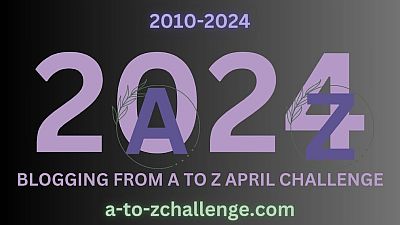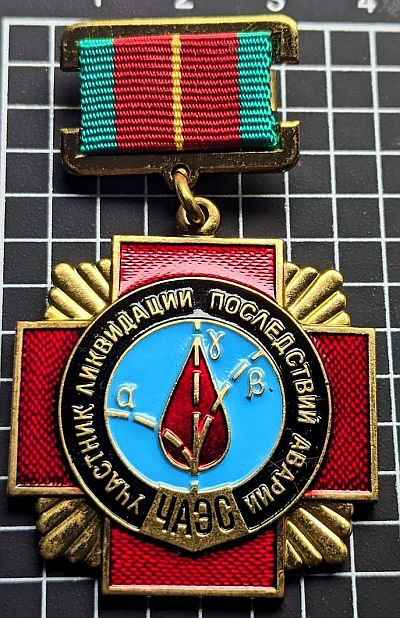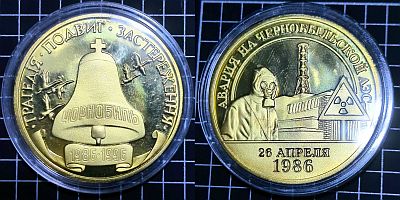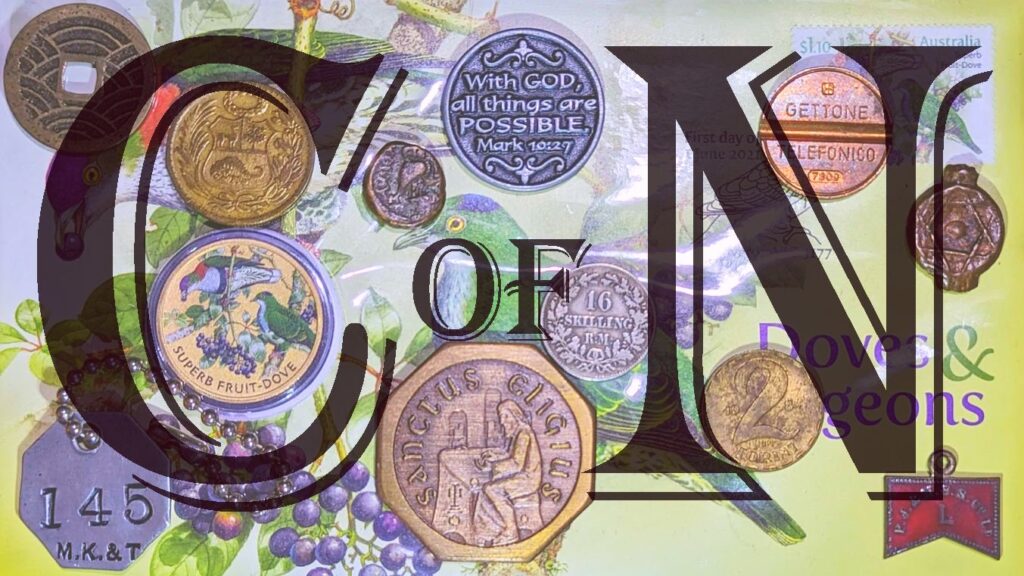A chilling reminder of bravery
This is my entry for Day 21 “U” of the Blogging from A-Z April Challenge!
U = Ukraine, or USSR

Chernobyl
View of Chernobyl taken from the roof of a building in Pripyat, Ukraine. Photo from Wikipedia.
The Chernobyl Nuclear Power Plant (Ukrainian: Чорнобильська атомна електростанція) was a set of four nuclear reactors which entered service in Chernobyl, northern Ukraine between 1978 – 1984. At the time the area was part of the “Union of Soviet Socialist Republics” (USSR). Initially six reactors were planned for the site, however only four were completed.
The reactors were RBMK-1000 models, designed in the Soviet Union.
On the night of the 26th April, 1986, the operators attempted to run a safety test on reactor 4, to determine how long turbines would spin and supply power to the main circulating pumps following a loss of main electrical power supply. Due to a peculiarity of the RBMK design, inserting the control rods – which should stop any reaction – actually caused a brief spike in power as they were inserted.
The interaction of very-hot fuel with the cooling water led to rapid steam production and an increase in pressure. The 1,000-ton cover plate of the reactor to become partially detached, rupturing the fuel channels, and jamming all the control rods, which by that time were only halfway down. Intense steam generation then spread throughout the whole core (fed by water dumped into the core due to the rupture of the emergency cooling circuit) causing a steam explosion and releasing fission products to the atmosphere. About two to three seconds later, a second explosion threw out fragments from the fuel channels and hot graphite.
Liquidators

Image of Liquidators lining up in their protective equipment in ‘Chernobyl: The Lost Tapes.’ Sky UK/HBO. Image credit: CNN.
The cleanup operation involved emergency workers, called “liquidators” being drafted into the area to clean up the plant premises and the surrounding area. These workers included plant employees, Ukrainian fire-fighters plus many soldiers and miners from Ukraine, Belarus, Russia, and other parts of the then Soviet Union. The exact number of liquidators is unknown because there are no completely accurate records of the people involved in the clean-up. The Russian registries list approximately 400,000 liquidators as of 1991 and approximately 600,000 people were granted the status of “liquidator”. These 600,000 individuals received special benefits because of their involvement, on- and off-site, in tackling the accident’s aftermath.
The duties of the liquidators varied. They worked on decontamination and major construction projects, including the establishment of settlements and towns for plant workers and evacuees. They also built waste repositories, dams, water filtration systems and the “sarcophagus”, which entombs the entire fourth reactor to contain the remaining radioactive material. The liquidators who went onto the roof of reactor 3 to shovel the radioactive material back into the remains of reactor 4 were known as bio-robots. These workers, in special home-made lead suits were only permitted on the roof for between 40 seconds and 2 minutes.
The role of the liquidators particularly was popularised in the 2019 miniseries “Chernobyl”.
Obverse

Kyle Hill runs a YouTube channel covering many things nuclear and other sciences; I highly recommend following him. He has posted a number of videos on Chernobyl, and visited the site. He also posted this video showing off a liquidators medal.
The text around the centre reads “УЧАСТНИК ЛИКВИДАЦИИ ПОСЛЕДСТВИЙ АВАРИИ” with “ЧАЗС” underneath. This translates to “Participant in the liquidation following the accident” with “ChNPP” underneath standing for “Chernobyl Nuclear Power Plant”.
The centre of the medal depicts pathways of alpha, gamma, and beta rays over a drop of blood, signifying the human health impacts of the Chernobyl accident. The medal is a red cross with gold rays between. The ribbon is green, red and yellow.
Reverse
The reverse of the medal is plain brass, so I haven’t included it here. But let’s look at the flip-side of the increased popularity of Chernobyl since the popular 2019 miniseries. There is no shortage of memorabilia available to buy, both online and in and around the exclusion zone. People are taking more risks in the pursuit of “Dark tourism”. And the exclusion zone, which is in a way a time capsule of the area, is being more degraded, including planting items such as children’s toys for tourists to photograph (I remember Kyle talking about it, and I think that is the right link).
As an alternative, there are souvenir medallions available online for a few dollars like these, which have likely been no closer to Chernobyl than the factory in China:

The bell on this piece matches the reverse of the non-circulating 1996 200,000 Karbovantsiv from Ukraine. As a historian, I advocate for remembering and learning from incidents such as Chernobyl. I don’t agree with taking needless risks for selfies or destroying the site of a historical incident like this. But I also feel odd buying a cheap souvenir coin when genuine artefacts are readily available. Although of course there is always the question of whether things are genuine. In the case of the medal I have, I believe so, although I wouldn’t be surprised if there are fake medals around. In the case of things like the Chernobyl reactor core graphite block mentioned here, perhaps not.
While this medal is not strictly a numismatic item, this was an artefact from an event with such profound echoes through the whole world in the 1980s / 1990s that I wanted to share it. What piece in your collection depicts the most historically significant event? Let us know below.


Leave a Reply